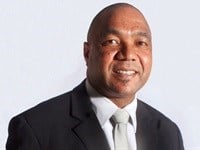"We want diversity, but the dominant player is allowed to get away with murder. When I walked into TopTV I realised that we could not turn it around because we are in an environment where the dominant player shuts you down. It is no use putting in money unless the regulatory environment changes."
He believes that our regulatory environment encourages monopolies. "Four licenses were awarded alongside TopTV, but only TopTV launched and two years after that it was in trouble. If the market is not sure that it can accommodate further licenses why give them out?"

This is not a new debate, he says, but one that has been going for the past 20 years. "We are still saying the same things. We need to change our mind-set. We are operating in a different era and we must look and move beyond our immediate market."
His comments form part of a wider panel discussion on finding the right kind of money to produce content, at the recent DISCOP Africa 2014, held at the Sandton Convention Centre in Gauteng.
Omar Essack, CEO, Kagiso Broadcasting, part of the panel took the discussion out of South Africa to the broader continent. "In Africa the media environment is not clearly defined. A big challenge on the continent is that there is no formal audience management and research, so no regular surveys take place. More than often not in these environments sales are purely relationship driven and South African companies, when they go north to invest, battle with this."
A content producer on the African continent face the same challenges as other producers in the world: finding capital and content, says Steven Markovitz, CEO, Big World Television, but Africa producers also have the unique challenge of proving the value of their audiences.
Over the years, he has tried many different financial models and he is still building models to secure funding for producing content and films. Tendeka Matatu, CEO, Restless Management/10 Films adds to this that as an independent producer the important thing is to find a model that works for you.
"You need to think about where you are now and where you want to be in 10 years' time and what type of movies you want to make. Ask why are you making the content and why this market place? If you can answer these questions then you can find the funding."
Content is no longer a differentiator for funding or investment says Essack. "I require you to show me why the idea you have is what audiences are crying out for. It is not just you and I that must love this idea. The concept of 'I will build and they will come' is simply just not true."

Too true says Markovitz. "You cannot just pitch an idea. Do proper research on the person or/and company you want to approach to fund your project. Build your assets, so that it's not just a great idea but is something that carries credibility to the person who you are taking the idea to. People have great ideas every day on the bus to work; it's not that special. Do the work and do the research."
Each and every film needs to be assessed differently. For example he has tried crowdsourcing. "This is not really practiced in Africa. We ran a campaign as an experiment. It was not a waste of time because while you are doing it you are building an audience, running a public relations and marketing campaign for the film."
He adds that with it getting increasingly difficult to get African content into the United States and Europe, crowdsourcing is a good way to build an audience and the basis of a campaign for your film.
Africans also need to create content that is successful worldwide. "We need to create African stories that resonate throughout the world. Stories with their roots in Africa, but a global message for example. The reality is that is we need to get that right. If we just make what is cheap because that's the risk we can afford then we will never raise the bar," says Essack.
"War and Africa rising are the two dominant narratives in the West when it comes to Africa. As film producers we must not repeat these but create other narratives. We must make a contribution to a cultural conversation of Africa and its narrative as well as how the rest of the world views the continent," agrees Markovitz.
If a story is relevant and it is produced as sophisticated high quality content then it will be commercially successful says Matatu. "Be passionate about your films, but realistic, why you doing it and how you going to get there. But do not dumb it down; rather push the boundaries."
The panel was hosted Russell Southwood, Publisher, Balancing Act.
